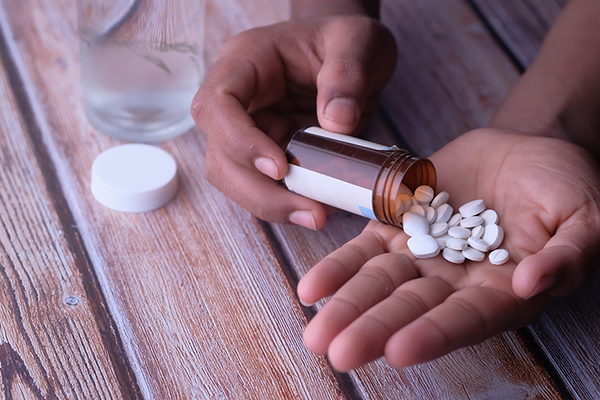It’s fairly obvious that if your doctor prescribes opioids to you because you’re having chronic pain—or even if you’re just taking them because you just had surgery—you’re at higher risk for being addicted to opioids.
You also have a higher risk of misusing or abusing these drugs, too—as do your family members or friends who might have access to your medication.
“You can’t get addicted to something unless you have access to it,” agreed Dr. Joseph Hernandez, a psychiatrist and addiction medicine physician at the addiction clinic at Augusta University Psychiatry and Health Behavior.
But access is just one factor.
Who’s At Risk?
A systematic review looking at 38 studies of opioid-treated patients with chronic pain found that around 8% to 12% of patients experienced addiction. But a much larger percent—21% to 29%—misused or abused medications.
There are many reasons why someone might misuse or abuse opioids. This includes:
- Misunderstanding between the patient and provider on how much to take or how long to take medication
- Using the opioid for a non-prescribed use. For example, other pain, to help with mood or for help falling asleep
- Wanting to get a “high”
- Selling the drugs for financial gain
Hernandez says that because of their background and history, some people may be more likely to become addicted to opioids, such as if you have a history of:
- Not being able to do normal activities due to pain
- Undefined cause of pain
- Any kind of psychological illness, stress or trauma, such as anxiety or depression, including a family history
- Substance abuse, which includes tobacco and alcohol—or a family history of substance abuse
- Childhood adversity
- Childhood sexual abuse
- Poor social support
- Binge-use or thrill-seeking behavior
- Social environments that encourage illicit substance use
- Legal problems
Young people under the age of 25 are also more likely to misuse, abuse or become addicted to opioids, said Hernandez.
Signs and Symptoms
The hard thing about opioid misuse, abuse or addiction is that the signs can be hard to spot.
“Sometimes a lot of stuff goes unnoticed for a while,” said Hernandez. “It’s easy to hide and really hard to pick out when people are doing it.”
There are vague symptoms like irritability, which can put stress on relationships, he says. You might also see other changes in behavior, like missing important social events or recreational activities, or missing work. The person misusing opioids may be really focused on their medication. But you might not find out until the addiction is severe and your loved one’s bank account has been drained due to spending all of his or her savings on opioids.
What to Do
If you’re worried about yourself or someone you love being at risk for abusing or becoming addicted to opioids, the place to start is to reduce access. “Take the least amount possible for the least time as possible,” said Hernandez. “And try other things to manage pain.”
This could include stepping down to other pain relievers such as acetaminophen or ibuprofen. Your doctor could also suggest physical therapy or even mindfulness, relaxation or breathing techniques.
If you or your loved one have other substance abuse or psychiatric problems, it’s also important to get treatment and help. A good place to start is your primary care physician, said Hernandez.
“Realize too that addiction can happen to anyone,” he said. “It’s a brain disease—and it doesn’t mean you’re weak-willed or morally bankrupt. It’s also a chronic condition, so you can put it in remission, but it can come back. If you’re concerned, reach out for help. There are resources and medication to help with addiction, but you have to seek that help in order to get it.”





